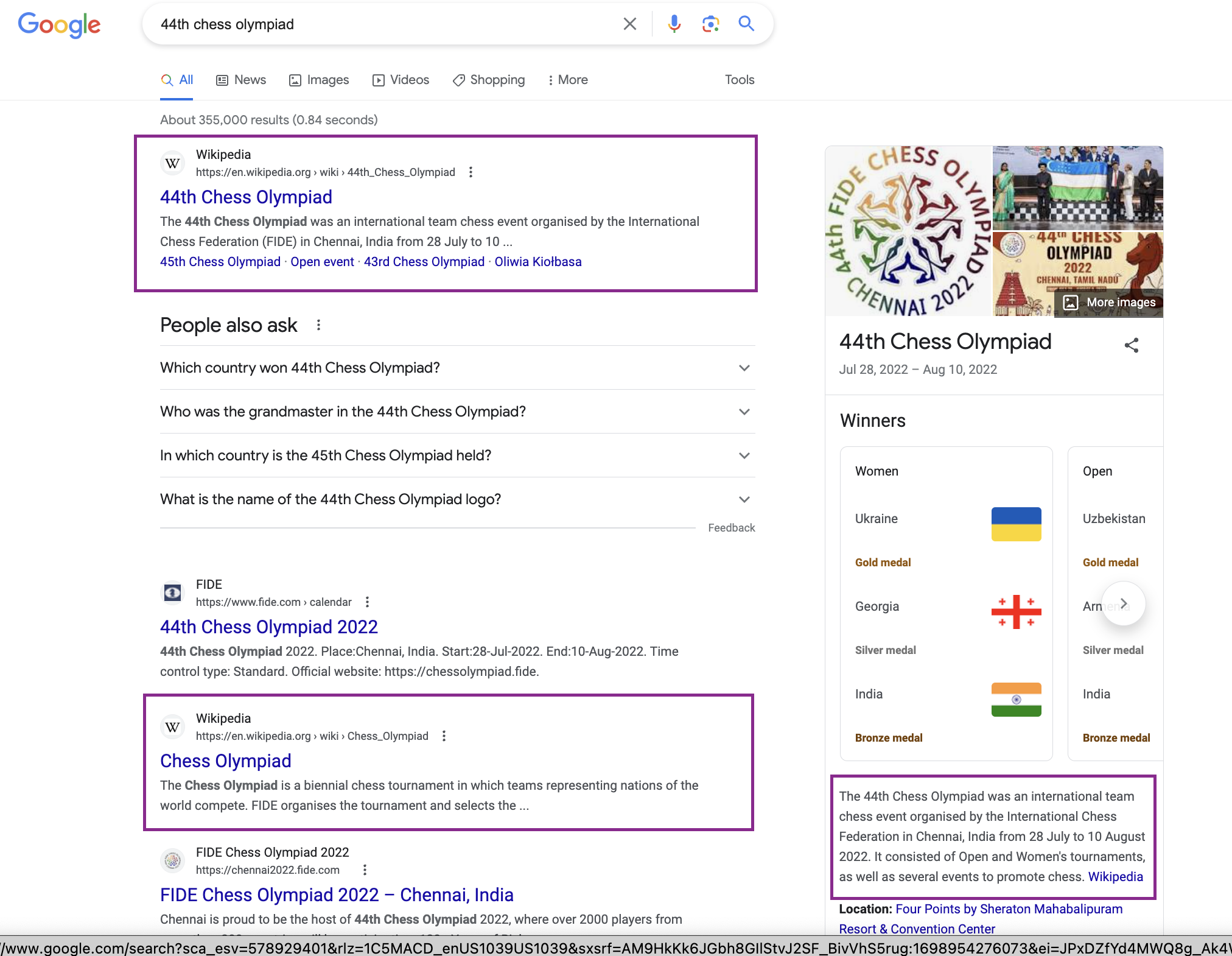How Wikipedia Affects Brand Reputation

- Wikipedia has a major influence on a company’s online reputation due to its ubiquity and perceived reliability as an information source. Both positive and negative content on Wikipedia can significantly impact brand perception.
- Many view having a well-managed Wikipedia presence as necessary for search engine optimization, increasing website traffic, and promoting brand awareness. However, Wikipedia’s “nofollow” links offer little SEO value.
- Contributing high-quality content to Wikipedia following best practices can help manage reputation, but removing negative content can be risky.
- There are best practices for developing and maintaining Wikipedia pages to improve reputation. This includes providing neutral, factual info with citations, not overtly promotional content.
- Overall, brands need a thoughtful Wikipedia strategy focused on making pages comprehensive, accurate reflections of the brand rather than solely promotional. Handled correctly, Wikipedia can be a reputation asset.
Wikipedia is a free online encyclopedia that allows people to create and edit articles. It is one of the most popular websites in the world and has a significant impact on brand reputation.
Why it Matters
Companies and public figures today must be more mindful than ever of how they are portrayed on Wikipedia. Wikipedia is like a banner that tells the world your company is significant. Wikipedia is highly visible, often ranking just below, or even above, the brand’s main website in search results.
Both positive and negative content can sway perceptions, making Wikipedia a vital platform to manage as part of reputation management strategies.
The Power of Wikipedia
As one of the most popular websites globally, Wikipedia has firmly established itself as an authoritative source of information on almost any topic imaginable.
With Google tending to rank Wikipedia very highly in search results, content on the site has an outsized influence on shaping first impressions of brands among customers.
Wikipedia is also used as the basis for other information products, such as Google’s Knowledge Panel. That means that the first paragraph of a brand’s Wikipedia article will normally show up in the Knowledge Panel summary at the top of branded search results even if Wikipedia is not ranking well.
Take this Google search results page, for example. Wikipedia shows up three times before you scroll at all!

The Importance of Wikipedia Accuracy
Wikipedia has strict guidelines for maintaining accuracy and neutrality in its articles. However, with the ability for anyone to edit an article, there is always a risk of biased or false information being added. This poses a significant threat to brand reputation as consumers may take any information presented on Wikipedia as fact. Even Wikipedia says it’s not that reliable.
In this comprehensive guide, we will explore how Wikipedia affects brand reputations in today’s hyperconnected world.
From getting an article drafted to editing existing pages responsibly, you will learn effective yet ethical ways to leverage Wikipedia to showcase your brand positively while preventing and mitigating reputation risks.
Read on to gain key insights into managing brand perception in the Wikipedia age!
Sections
- The Role of Wikipedia in Shaping Online Reputation
- The Reliability of Wikipedia Articles
- How to Get a Wikipedia Article
- The Basics of Becoming a Wikipedia Editor
- Editing Your Own Wikipedia Article
- Addressing and Preventing Wikipedia Vandalism
- Useful Wikipedia Statistics
The Role of Wikipedia in Shaping Online Reputation
With over 6 million articles and 55 million monthly visitors, Wikipedia has become one of the most visited websites globally. This ubiquity means that Wikipedia often appears high in Google search results, shaping initial perceptions of brands among customers.
A Wikipedia page signifies authority and notability, especially if it is well-written and properly referenced. Wikipedia has a direct role in shaping online reputation.
Positive Wikipedia content can enhance a brand’s credibility and trustworthiness. Conversely, negative information on Wikipedia can damage reputation, leading to the loss of customers or partners.
This is why reputation management experts recommend proactively managing your Wikipedia presence. However, directly editing Wikipedia for promotional purposes violates site policies. The right approach requires understanding Wikipedia’s unique dynamics.
The Reliability of Wikipedia Articles
Despite its open editing model, Wikipedia articles can be quite reliable, especially on non-controversial topics. However, more controversial topics often require more monitoring as the reliability can be more challenging to maintain. Studies have found Wikipedia’s accuracy comparable to traditional encyclopedias.
However, there are factors affecting article quality:
- Article references: Articles with more references from high-quality publications tend to be more reliable.
- Edit count: Frequently edited articles tend to be more accurate as errors get fixed over time.
- Contributor reputation: Articles edited by established editors and with little to no bias are generally more reliable.
- Controversial topics: Articles on controversial topics like politics see edit wars and often experience more bias.
- Breaking news: Articles about recent events may have incomplete info as facts emerge.
So article references, edit history, and contributor reputation act as signals of reliability. Still, it is wise to verify key facts against authoritative third-party sources.
How to Get a Wikipedia Article
To create a Wikipedia article, first determine if the topic merits one. Wikipedia has notability guidelines requiring significant third-party coverage for brands and organizations.
If the subject has enough notability, here are tips for drafting the article:
- If you can, ask an experienced Wikipedia editor with subject-matter expertise to help or even write the article if possible.
- Adopt an objective, neutral tone, avoiding promotion, bias, or conflicts of interest.
- Thoroughly research the topic using reliable published third-party sources. Wikipedia prohibits original research.
- Choose clear, descriptive titles and section headings.
- Start with a concise lead section summarizing the most essential points.
- Structure content in a logical order with appropriate paragraph breaks.
- Cite sources inline for all facts, statistics, quotes, or content originating elsewhere.
- Comply with content policies and guidelines outlined in Wikipedia’s Manual of Style.
- Include relevant images, infoboxes, and navigation templates to improve the presentation.
Getting quality citations is absolutely crucial, so leverage sources like media reports, books, government data, and academic publications. Don’t use press releases if you can avoid doing so. The goal is to demonstrate notability and build content from third-party reliable sources in a neutral way.
Becoming a Wikipedia Editor
Anyone can create a Wikipedia account and start editing articles. Here are some basics on how to become a Wikipedia editor:
- Learn Wikipedia’s policies: Read the key guidelines around neutrality, verifiability, and conduct. Understand conflict of interest rules.
- Create an account: Register a username to get editing privileges. You can disclose affiliations on your user page.
- Make constructive edits: Start small, fix typos, add citations, improve structure, etc. Platform conventions take time to master.
- Communicate transparently: Be upfront about intentions when working on articles related to you or employers to build trust.
- Collaborate respectfully: Wikipedia editing involves discussions with fellow editors. Maintain civility even during disagreements.
- Learn the tools: Utilize features like edit histories to understand an article’s progression and contributors.
As you gain experience, you can take on more extensive edits around content addition, structural changes, media uploads, and more. But focus first on improving existing articles before creating new ones.
Editing Your Own Wikipedia Article
Finding errors or out-of-date information on your Wikipedia page can be concerning. But directly editing it risks a conflict of interest violation. Here are some dos and don’ts:
- DO reach out to respected editors on the Talk page, explaining issues objectively and asking for input. Here’s an example of how to find and use the Talk page:
- DO make objective, constructive improvements by adding properly cited information from reliable third-party media, data sources, or academic publications.
- DO disclose your affiliation if asked and respond politely to queries.
- DON’T remove well-sourced negative content, no matter how harmful to your reputation.
- DON’T add promotional material, puffery, or overly positive commentary without attribution.
- DON’T get into edit wars trying to force changes against consensus.
Addressing and Preventing Wikipedia Vandalism
Vandalism refers to bad-faith edits that damage Wikipedia, like inserting obscenities, hate speech, or slander into articles. High-profile brand pages can attract vandalism.

Here are tips to address such issues:
- Monitor changes: Watchlist your article to notice suspicious edits quickly. Choose email alerts on changes.
- Assume good faith: Many improper edits are from inexperienced editors, not vandalism. Clarify policies before jumping to block.
- Revert vandalism: Undo obvious vandalism immediately while reporting it. Don’t engage with vandals.
- Dispute questionable edits: For dubious but not clearly vandalistic changes, discuss first before reversing.
- Semi-protect sensitive pages: Admins can semi-protect high-risk pages, so only approved editors can modify them.
By reverting vandalism but assuming good intentions in policy misunderstandings, you can maintain article integrity while preventing edit wars.
Useful Wikipedia Statistics
- English Wikipedia contains over 6 million articles, making it the largest of over 300 language editions.
- As of 2022, Wikipedia ranked among the top 10 most visited websites globally, with over 55 million monthly visitors.
- A minority of registered users actively edit Wikipedia regularly. As per 2021 data, only around 250,000 users made 5+ edits a month.
- Studies indicate registered editors spend a median time of 45 60 minutes a day editing Wikipedia articles.
- Research on recent edits indicates that Wikipedia’s gender disparity has improved, though male editors still outnumber female editors by 4 to 1.
- Geographically, most Wikipedia contributors come from Europe and North America, with lower participation from Asia, Africa, and South America.
- Wikipedia’s credibility correlates with indicators like article length, edit count, editor reputation, and citation quality, according to academics who study it.
- Independent quality assessments found Wikipedia’s accuracy comparable to traditional print encyclopedias like Britannica.
Final Thoughts
In summary, Wikipedia’s prominence as an information source means brands must proactively yet judiciously manage their presence to showcase positives and mitigate negatives. While directly editing your own page is risky without proper precautions, you can indirectly improve content through outreach and the contribution of reliably sourced information. With its global reach,
Wikipedia has become a key platform shaping reputations – one that brands cannot afford to ignore. For more tips and best practices, download our Wikipedia development guide here or contact us today.
About the author
Brianne Schaer is a Writer and Editor for Reputation X, an award-winning online reputation management services agency based in California. Brianne has more than seven years of experience creating powerful stories, how-to documentation, SEO articles, and Wikipedia content for brands and individuals. When she s not battling AI content bots, she is cruising around town in her Karmann Ghia. You can see more of her articles here and here.
–
Tags: Wikipedia, Wikipedia Writing.
